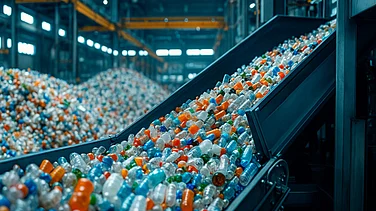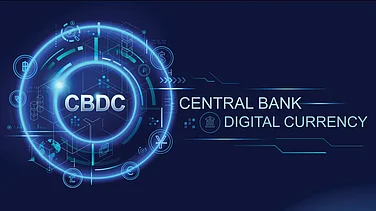The electric vehicle (EV) industry is witnessing exponential growth as the world shifts towards sustainable transportation. According to the International Energy Agency (IEA), the global stock of electric cars reached over 10 million in 2020, a 43 percent increase from the previous year. This surge in EV adoption, however, brings with it a significant challenge: the disposal and recycling of used batteries. Battery recycling is emerging as a crucial component in ensuring the sustainability and environmental friendliness of the EV industry. By transforming waste into a valuable resource, battery recycling can mitigate environmental impacts, conserve natural resources, and support the circular economy.
The Importance of Battery Recycling
Lithium-ion batteries, the most common type used in EVs, have a lifespan of 8 to 15 years. As the first generation of EVs begins to reach the end of its lifecycle, the number of spent batteries is expected to rise dramatically. According to a report by Circular Energy Storage, the volume of used EV batteries could reach 7.8 million tonnes per year by 2040. Without proper recycling measures, these batteries pose significant environmental hazards due to their toxic components and potential for causing fires.
Environmental and Economic Benefits
Battery recycling offers numerous environmental and economic benefits. Firstly, it reduces the need for raw material extraction. Mining for materials like lithium, cobalt, and nickel is not only environmentally damaging but also associated with human rights abuses in certain regions. Recycling can help reduce the demand for these virgin materials. For instance, recycled lithium-ion batteries can provide up to 95 percent of the materials needed for new batteries.
Secondly, recycling mitigates the environmental hazards associated with improper disposal. Spent batteries contain hazardous substances that can contaminate soil and water if not handled correctly. By recycling batteries, these harmful elements are safely processed and reused, minimising their environmental impact.
From an economic perspective, battery recycling creates new business opportunities and jobs. According to a report by Market Research Future, the global battery recycling market is expected to reach $11.83 billion by 2030, growing at a compound annual growth rate (CAGR) of 5.3 percent from 2022 to 2030. This growth is driven by increasing EV adoption and the rising demand for sustainable battery management solutions.
Technological Advances in Battery Recycling
Recent advancements in battery recycling technologies have made the process more efficient and cost-effective. There are two primary methods for recycling lithium-ion batteries:
Pyrometallurgical Recycling: This method involves high-temperature processing to extract metals from used batteries. While effective, it consumes significant energy and can emit pollutants. However, improvements in this technology are making it cleaner and more efficient.
Hydrometallurgical Recycling: This process uses aqueous chemistry to recover metals from batteries. It operates at lower temperatures than pyrometallurgy and can achieve higher recovery rates for certain materials. Hydrometallurgical recycling is gaining traction due to its lower environmental impact.
Innovations, such as direct recycling, are also being explored. Direct recycling aims to recover and reuse entire battery components, like cathodes, without breaking them down into their constituent materials. This method could potentially reduce costs and improve the quality of recycled materials.
Industry Initiatives and Case Studies
Several companies and organisations are leading the charge in battery recycling, demonstrating its feasibility and benefits:
Redwood Materials: Founded by former Tesla CTO JB Straubel, Redwood Materials focusses on developing sustainable battery recycling solutions. The company aims to create a closed-loop system where materials from old batteries are reused to make new ones.
Li-Cycle: This Canadian company uses a hydrometallurgical process to recycle lithium-ion batteries. Li-Cycle claims to recover over 95 percent of all battery materials, which are then reintroduced into the supply chain.
Tesla: Tesla has implemented an in-house recycling programme to recover valuable materials from used batteries. The company's gigafactories are equipped with recycling facilities to ensure that end-of-life batteries are processed sustainably.
Challenges and Future Prospects
While battery recycling holds great promise, several challenges must be addressed to realise its full potential:
Collection and Transportation: Efficiently collecting and transporting used batteries to recycling facilities is crucial. Developing robust logistics and collection networks is essential for a successful recycling ecosystem.
Standardisation: The lack of standardised battery designs and chemistries complicates the recycling process. Industrywide standards can streamline recycling operations and improve efficiency.
Economic Viability: The economics of battery recycling depend on market conditions, including the prices of recovered materials and the costs of recycling processes. Continued innovation and economies of scale are needed to make recycling consistently profitable.
Regulatory Support: Governments play a vital role in promoting battery recycling through supportive policies and regulations. Incentives, subsidies, and stringent disposal regulations can encourage the development of recycling infrastructure.
Battery recycling is poised to transform the EV industry by turning waste into valuable resources. As the demand for electric vehicles grows, so does the need for sustainable solutions to manage the lifecycle of their batteries. Recycling not only conserves critical materials and reduces environmental impact but also presents significant economic opportunities.
Innovative companies and technological advancements are paving the way for efficient and effective recycling processes. However, addressing challenges such as collection logistics, standardisation, and economic viability will be crucial for scaling these solutions.
In the broader context of sustainability, battery recycling represents a critical component of the circular economy, where materials are continually reused, reducing the strain on natural resources and minimising waste. By embracing and advancing battery recycling, the EV industry can accelerate its journey towards a more sustainable and resilient future.
(Harry Bajaj CEO Mobec Innovation, EV Charging Solutions.)

























